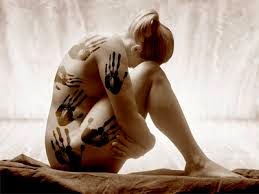This topic is a very sensitive one. So most of it will be information pulled from the internet to give you the correct information. If you child or adult are going thru some domestic violence, I urge you to speak up and call 911. This is not a joke. You can suffer mentally and physically. It's up to you to break that abuse link and fight for your rights.
.jpg) Domestic violence and abuse can happen to anyone, yet the problem is often overlooked, excused, or denied. This is especially true when the abuse is psychological, rather than physical. Noticing and acknowledging the signs of an abusive relationship is the first step to ending it. No one should live in fear of the person they love. If you recognize yourself or someone you know in the following warning signs and descriptions of abuse, reach out. There is help available.
Domestic violence and abuse can happen to anyone, yet the problem is often overlooked, excused, or denied. This is especially true when the abuse is psychological, rather than physical. Noticing and acknowledging the signs of an abusive relationship is the first step to ending it. No one should live in fear of the person they love. If you recognize yourself or someone you know in the following warning signs and descriptions of abuse, reach out. There is help available. There are many signs of an abusive relationship. The most telling sign is fear of your partner. If you feel like you have to walk on eggshells around your partner—constantly watching what you say and do in order to avoid a blow-up—chances are your relationship is unhealthy and abusive. Other signs that you may be in an abusive relationship include a partner who belittles you or tries to control you, and feelings of self-loathing, helplessness, and desperation.
There are many signs of an abusive relationship. The most telling sign is fear of your partner. If you feel like you have to walk on eggshells around your partner—constantly watching what you say and do in order to avoid a blow-up—chances are your relationship is unhealthy and abusive. Other signs that you may be in an abusive relationship include a partner who belittles you or tries to control you, and feelings of self-loathing, helplessness, and desperation. When people talk about domestic violence, they are often referring to the physical abuse of a spouse or intimate partner. Physical abuse is the use of physical force against someone in a way that injures or endangers that person. Physical assault or battering is a crime, whether it occurs inside or outside of the family. The police have the power and authority to protect you from physical attack. The aim of emotional abuse is to chip away at your feelings of self-worth and independence. If you’re the victim of emotional abuse, you may feel that there is no way out of the relationship or that without your abusive partner you have nothing.
When people talk about domestic violence, they are often referring to the physical abuse of a spouse or intimate partner. Physical abuse is the use of physical force against someone in a way that injures or endangers that person. Physical assault or battering is a crime, whether it occurs inside or outside of the family. The police have the power and authority to protect you from physical attack. The aim of emotional abuse is to chip away at your feelings of self-worth and independence. If you’re the victim of emotional abuse, you may feel that there is no way out of the relationship or that without your abusive partner you have nothing. Emotional abuse includes verbal abuse such as yelling, name-calling, blaming, and shaming. Isolation, intimidation, and controlling behavior also fall under emotional abuse. Additionally, abusers who use emotional or psychological abuse often throw in threats of physical violence or other repercussions if you don't do what they want.
Emotional abuse includes verbal abuse such as yelling, name-calling, blaming, and shaming. Isolation, intimidation, and controlling behavior also fall under emotional abuse. Additionally, abusers who use emotional or psychological abuse often throw in threats of physical violence or other repercussions if you don't do what they want.You may think that physical abuse is far worse than emotional abuse, since physical violence can send you to the hospital and leave you with scars. But, the scars of emotional abuse are very real, and they run deep. In fact, emotional abuse can be just as damaging as physical abuse—sometimes even more so.
.jpg)
.jpg)
No comments:
Post a Comment